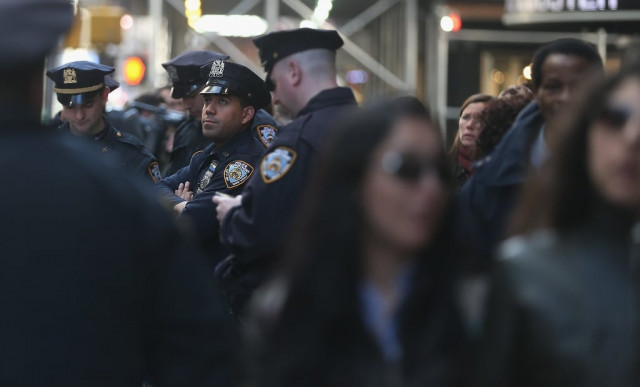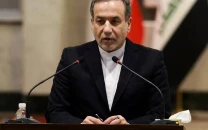Boston police chief not warned about Tsarnaevs
Russian authorities had alerted the FBI in 2011 that Tsarnaev may have been radicalised.

Russian authorities had alerted the FBI in 2011 that Tsarnaev may have been radicalised. PHOTO: AFP/FILE
Russian authorities had alerted the FBI in 2011 that Tsarnaev, an ethnic Chechen and legal US resident who authorities say set the bombs with his younger brother, may have been radicalised.
And federal authorities in Washington were also aware of his travels to Russia's southern region of Dagestan last year, perhaps to join underground groups.
In the first congressional hearing into the deadly double bombing, lawmakers expressed outrage, particularly at a lack of intelligence sharing that left Boston officials in the dark about potential terror threats.
"My understanding is that at no time prior to the bombing did any member of Massachusetts State Police or the (intelligence-gathering) fusion center have any knowledge of the Tsarnaev brothers," Boston Police Commissioner Edward Davis told the House Homeland Security Committee.
He and another official, Massachusetts Undersecretary for Homeland Security Kurt Schwartz, testified that the intelligence information was never shared with their departments.
Davis said he was not made aware that the Federal Bureau of Investigation had launched its own probe of the Tsarnaevs after the Russian alert, and he learned about the older brother's background only after he was killed in a shootout with police three days after the bombings.
Such shortcomings are resurrecting concerns about the "stove-piping" of intelligence data within US agencies - a problem highlighted in the aftermath of the failed attempt by "underwear bomber" Umar Farouk Abdulmutallab of Nigeria to blow up a commercial airliner on Christmas Day 2009.
Republican Michael McCaul, who chairs the panel, sounded incredulous about US officials' inability to coordinate data.
"My fear is that the Boston bombers may have succeeded because our system failed," he said.
"The idea that the feds have the information and it's not shared with the state and locals defies why we created a Department of Homeland Security in the first place."
The FBI, perhaps in an effort to deflect accusations it was hoarding intelligence, assured that all local members of a Joint Terrorism Task Force have "unrestricted access" to counter-terrorism data and are "responsible for maintaining awareness of possible threats to their respective jurisdictions."
And FBI Boston's Special Agent in Charge Richard DesLauriers made clear that Boston police "specifically had representatives assigned to the JTTF squad that conducted the 2011 assessment of deceased terrorism suspect Tamerlan Tsarnaev."
Davis acknowledged in the hearing that his department has access to "all the databases," but it was not directly made aware of the Tsarnaevs, and he said he "absolutely" would have followed up on them had he been briefed on the FBI probe and the Russian alert.
Ex-senator Joseph Lieberman, who worked at length on improving US security after the 9/11 attacks in 2001, testified that the latest missteps were an "aggravating omission."
"Why didn't they involve local law enforcement, who could have stayed on this case?" Lieberman asked. "How do you explain it? People are imperfect."
Concerned Democrat Sheila Jackson Lee said "it still baffles all of us" that Tsarnaev's Russia trip did not trigger heightened intelligence gathering on the brothers.
Davis said it was too early to start pointing fingers.
"I'm not ready to vilify anybody at this point in time, but there are questions that need to be answered," he told reporters.
In his testimony, Davis called for heightened security and surveillance technology at major public events in order to help thwart attacks.
"In the future, we will need to deploy more assets, including technology, cameras, undercover officers and specialized units," he said, while insisting that constitutional liberties must be upheld.
"I do not endorse actions that move Boston and our nation into a police state mentality, with surveillance cameras attached to every light pole in the city."
Meanwhile, police in Massachusetts said Tsarnaev's body finally had been buried, following a row over what to do with the remains.
"His body is no longer in the City of Worcester and is now entombed," the local police department said in a statement, without providing a location of the burial.


















COMMENTS
Comments are moderated and generally will be posted if they are on-topic and not abusive.
For more information, please see our Comments FAQ